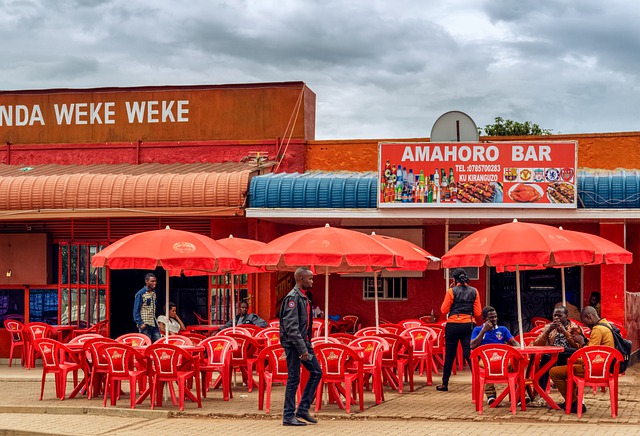KIGALI, June 25, 2019 – Rwanda’s economy expanded at 8.6 percent in 2018 and headline inflation remained low at 1.2 percent as of March 2019, says the new World Bank Rwanda Economic Update released today. The report forecasts favorable economic outlook with growth expected to be in the range of 7.5 to 8 percent annually.
According to the report, Rwanda Economic Update: Lighting Rwanda, the growth was broad-based; with agriculture expanding by almost 6 percent while industries, supported by construction and manufacturing, grew by more than 10 percent, and the service sector recorded a 9 percent growth.
“Supported by conducive macroeconomic policies, Rwanda continues to enjoy a strong economic momentum characterized by high growth and low inflation,” said Aghassi Mkrtchyan, Senior Economist at the World Bank. “While public investments will continue to support the growth over the medium-term, Rwanda needs to strengthen its nascent private sector to stay on a high growth trajectory in the long-run”.
In its special focus on energy “Lighting Rwanda”, the 14th Rwanda Economic Update discusses the country’s achievements in expanding generation of and access to electricity and outlines the main challenges facing Rwanda in achieving its ambitions in expanding the power sector in a low-cost and fiscally sustainable manner.
The report established that Rwanda’s power sector has grown rapidly in the past decade and outpaced many of its peers in Sub-Saharan Africa. More than half of Rwandans have access to electricity in their home, compared to 10 percent in 2009. Generation capacity has more than tripled in the same period, and outages have become shorter and much less frequent.
“Rwanda’s energy sector has been a success story in the region that many are trying emulating. The five-fold increase in electricity access within ten years is almost unprecedented when compared with electricity access expansion in similar countries”, said Yasser El Gammal, World Bank Country Manager for Rwanda.
Despite this growth in the energy sector, the cost of electricity supply in Rwanda is among the highest in the region and remains a constraint for Rwanda’s economic and industrial development. Household consumers have problems affording electricity at the present tariffs, a problem that will be aggravated as the rural electrification drive reaches ever poorer parts of the population.
Supported by the World Bank and other development partners, the government has since 2017 implemented several reforms to make electricity service more affordable and ensure that it becomes an engine of economic growth and private-sector development. To reap the benefits of and deepen this reform program over the coming decade, the Rwanda Economic Update proposes the following priority measures:
- Pursuing sector expansion in line with least-cost sector planning
- Putting REG into the driving seat of developing new PPP investments identified in the least-cost plan.
- Accelerating efforts to decarbonize the power sector and adapting to climate change
- Regularly adjusting tariffs for changes in cost and, over time, expanding the groups of electricity consumers that do not need tariff subsidies and are charged the full cost of service
- Providing a state-of-the-art framework for private sector participation in off-grid electrification and targeted incentives to make off-grid solar affordable
- Promoting regional electricity trade through bilateral contracts to tap lower cost supply sources and better integrate variable renewables; and
- Doubling down on the modernization of REG’s operations.
